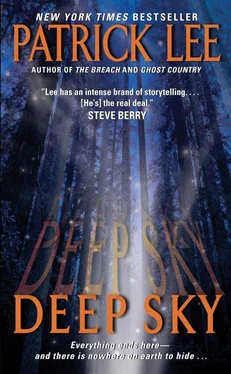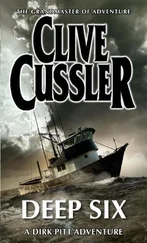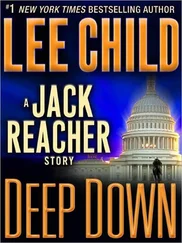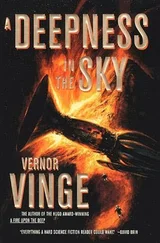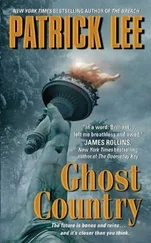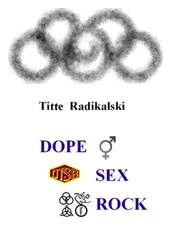“Can you actually change things?” Travis said. “If all of you come through to 2016, do you really believe you can rewrite history? And if you can, how do you know you’ll make it better? Couldn’t the same kind of war still happen someday, for other reasons?”
It took a long time for Garner to answer. His eyes and his head slowly turned, tracking the distant pinpoint of light in the endless black. He was still watching it when he began to speak.
“I can tell you about dozens of close calls the world has scraped past, these last twelve hundred years. Any one of those could’ve ended it. Finally one did. It was a matter of time.” Far below the curved glass, the giant gas planet crept back into view. First came one horn of the lit crescent, and then the broad curve. The mostly dark mass of the thing blotted out the stars beyond it like an ink spill. “There are fundamental problems that never seem to go away,” Garner said, “no matter how advanced the world becomes. No matter what you invent. No matter what you cure. You never get rid of things like denial, in-group and out-group thinking, cognitive dissonance. The things that underlie every conflict and every war. There are always people who want to get rid of those things, and those people get smarter and more capable over the centuries—but so does everyone else: the people who don’t want those things to change. So the pattern holds.” Garner looked up at Travis. “Our arrival in your time would stand some chance of breaking the cycle. We have the interests of the whole world at heart—we know what it’s like to lose it—and we also have the knowledge and means to really change things for the better. We’re more than just well informed. We’re smarter, by a wide margin, than anyone on Earth in 2016. Our brains are physically different from yours, given what we’ve done to them. Any one of us could complete an IQ test from your side of the Breach perfectly, about as quickly as we could move the pencil.”
“But is that enough to change things forever? A few hundred of you, among a few billion?”
Travis watched Garner and saw something in his eyes, flickering beneath the conviction with which he’d just spoken. A vestige of his earlier remorse, maybe.
“No,” Garner said. “It takes more than that.”
Travis found himself speaking the word even as he thought it: “The filter.”
Garner nodded just perceptibly. “How much do you know about it?”
“Almost nothing,” Travis said.
Seconds passed. Garner looked away. “A few minutes ago you told me about a computer called the Blackbird. Alien technology that you repurposed in some other timeline. A machine that can make hyper-accurate predictions, even about random events that haven’t happened yet.”
Travis waited for him to go on.
“We found computers just like that,” Garner said, “governing the hubs of this tunnel network.” He indicated the massive planet, already slipping back out of view. “You can’t see it from here, but there’s an object the size of Long Island orbiting just above the cloud tops down there. An artificial satellite. We managed to board it soon after arriving in this system. The best we could tell, it’s a way station of some kind, connecting hundreds of these tunnels to one another. The place is filled with old electronics, some of it running down, most of it still working. There’s automated maintenance overseeing everything critical, and based on certain timers we were able to decipher, we figure the thing’s been abandoned for just over three billion years.”
Travis tried to get a sense of time on that scale, but gave it up after a few seconds.
“Huge areas of the satellite are just stores of backup supplies,” Garner said. “Including computers. We took one, brought it aboard this ship, and spent about fifty years learning everything we could about it. Learning that it does its computation by interacting with surrounding material. Large amounts of surrounding material.”
“A whole planet’s worth,” Travis said. “The Blackbird told me that at the end.”
Garner nodded. “Once we understood that part, we realized there was a certain function we could use this computer for, if we ever made it back to Earth through one of these tunnels—back to Earth during your time. This function was very difficult to set up; it’s nothing you could’ve done with the Blackbird. The programming alone took us two decades. Then we ran thousands of simulations of how it would play out in real life once we triggered it. How it would work on Earth.”
“How what would work? What function?”
“We called it the filter. I don’t remember who came up with that name, but it stuck. I guess it made the idea sound clean.”
“What does it do?”
Garner remained silent for a while. He didn’t look at Travis. Beneath him, the planet slipped away again, leaving only the tumble of stars.
“There’s a question philosophers used to ask,” Garner said. “Maybe you’ve heard some version of it. Suppose you suddenly found yourself on a street corner in Europe, in the year 1895, and encountered a six-year-old boy named Adolf Hitler. Could you kill him, right then and there?”
“You’re asking?” Travis said.
“Sure.”
Travis thought about it. “I really don’t know. I’d think I should , but that’s not to say I could .”
Garner nodded. “That’s a common answer. Let’s say you did kill him. Do you believe World War Two would be prevented as a result?”
Travis shrugged. “I’m sure there’d still be a fight about something around that time.”
Garner nodded again. “Same fight, for all the same reasons: broad political and religious ideologies grown out of centuries of ingrained hate; control of primary resources like territory, access to fossil fuel reserves, seaports. Somebody would’ve ended up banging the podiums over it. Different leaders might’ve been far less cruel, might’ve conducted the war in entirely different ways, but you could probably swap out the leadership of every country in the world at that time, and the middle of the twentieth century would’ve still been a nightmare. In which case you might ask yourself if it’d just be a mug’s game, trying to change things. Aboard this ship we asked ourselves that question, and not as some academic brain teaser. The answer meant a great deal to us.”
Suddenly Travis understood. Or thought he did.
“You and the others planned to bring that computer with you,” he said, “back to Earth in 2016. You could use it to identify people who’d eventually be responsible for wars, all kinds of atrocities, long before they took power. Then you could just . . . kill them?”
“We could. And after that we could use the computer again to find out who was now on course to fill their shoes. And if we killed those people , we could look for their historical replacements, and so on. Beyond a certain point, we’d be killing people who originally wouldn’t have done anything wrong. People who might’ve never ended up in positions of power at all, if we hadn’t already killed the first several layers of troublemakers. You can see how the morals of the thing get tangled.”
Whoever it affects, Ward had said, it’s not their fault. Not really. Under the wrong conditions, anyone could end up the worst person on Earth.
“I thought it was about me,” Travis said, almost to himself. “I thought I was on track to become . . . someone bad.”
“Not you,” Garner said. “Others. Many, many others.”
Travis looked up at him. “Twenty million.”
Garner’s mouth seemed to have gone dry. He swallowed with a little difficulty, then nodded. “That’s the rough number we came up with, every time we simulated it. If you chose them very precisely, the removal of some twenty million specific people from the world population would leave things unusually stable. Conflicts already under way in places like Congo and Sudan would suddenly lack not only leaders and instigators, but anyone able and willing to fill the vacuum left by them. All the suitable candidates would be dead. The same would be true of every saber-rattling regime in the world, including more than a few that don’t call themselves regimes. The result of all this would be something uncanny. To any observer who didn’t know better, for the next century the human race would seem, by sheer luck, to dodge every potential flashpoint that came along. Every dangerous stare-down between nations would happen to have a JFK or two in the right places to defuse it, instead of the various alphas who’d have normally held those positions. All those aggressive men—and a few women—would’ve been strained right out of history by then. Filtered.”
Читать дальше
